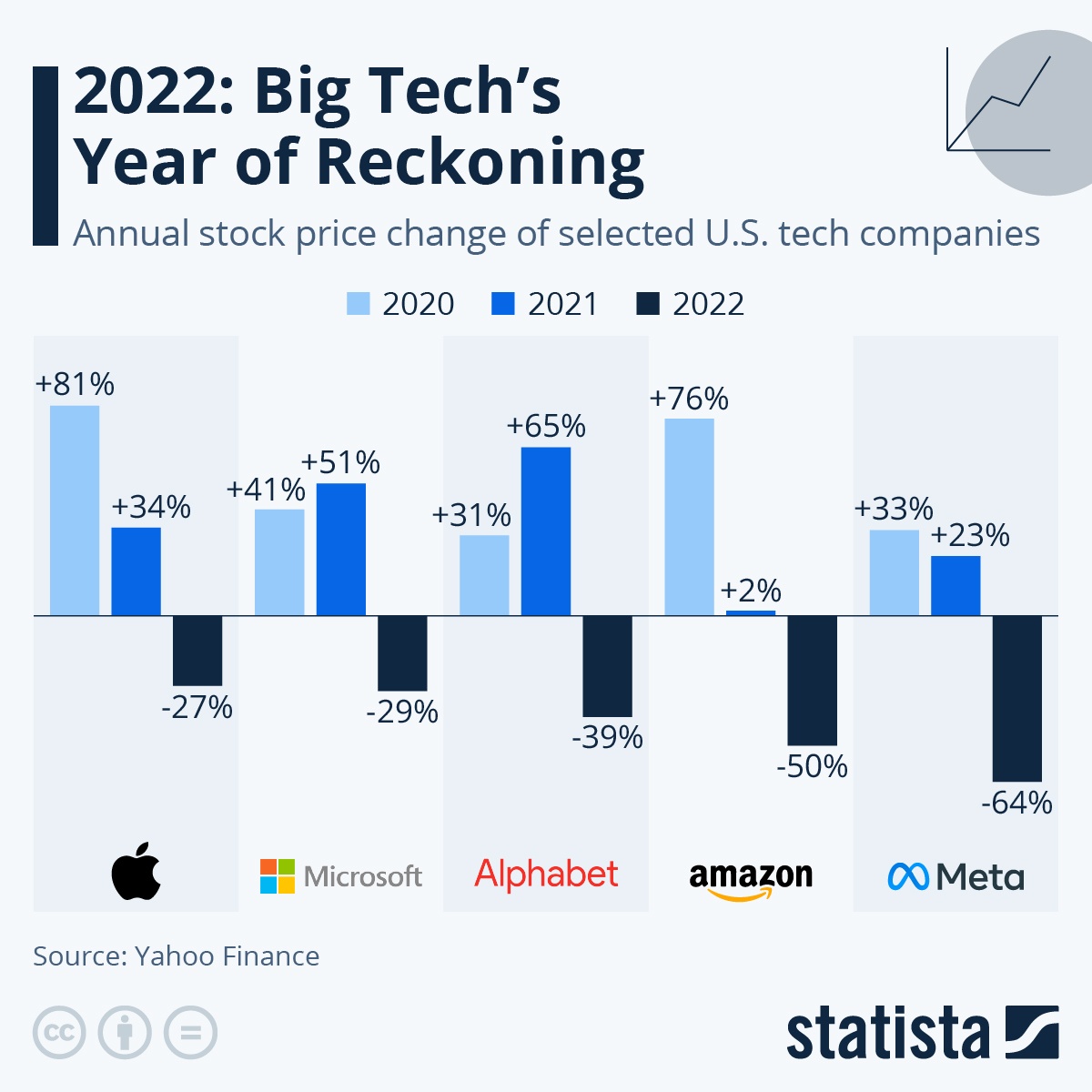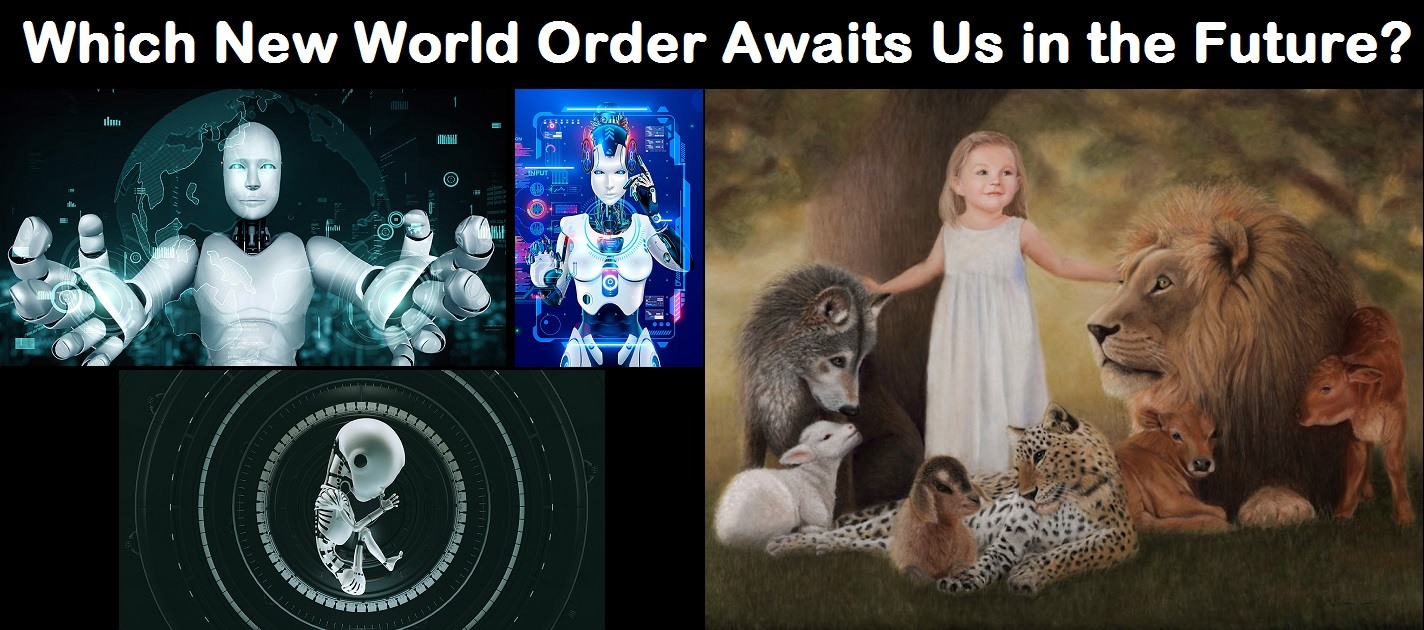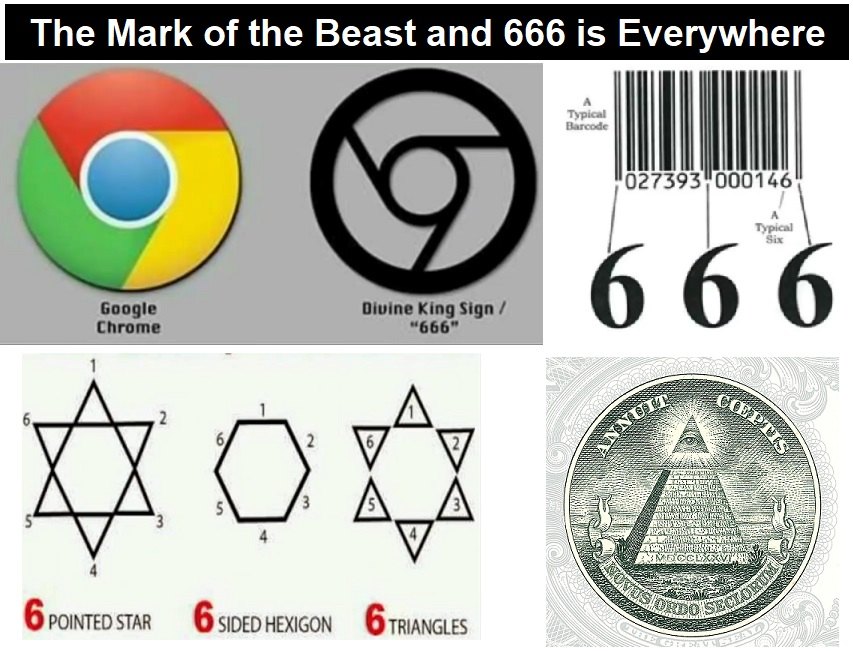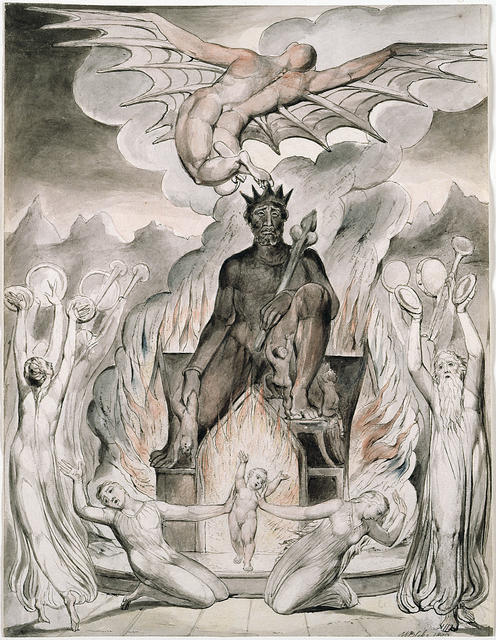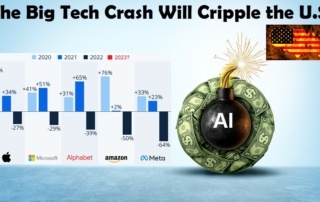
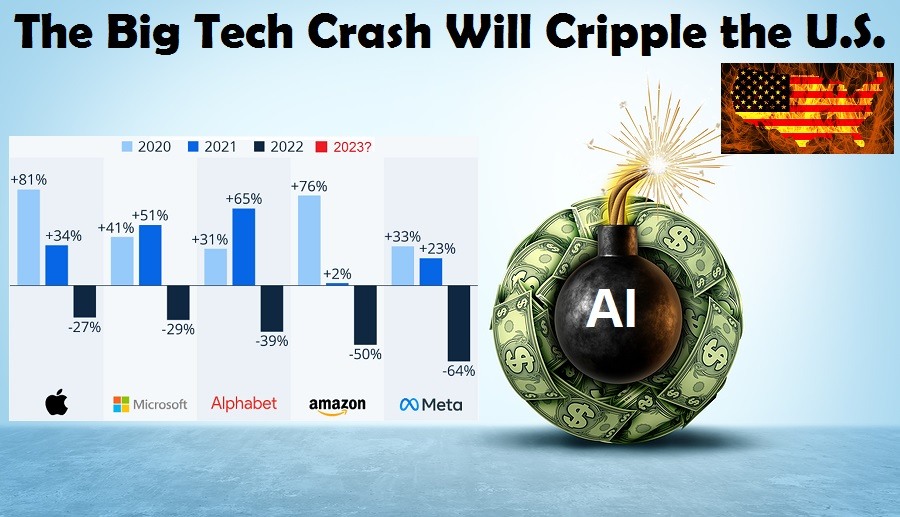
by Brian Shilhavy
Editor, Health Impact News
I have been reporting on the Big Tech Crash since it started last year (2022).
This crash picked up speed in 2022 following the collapse of the mega Cryptocurrency company FTX, which revealed a huge criminal Ponzi scheme that raked in $billions while its founder and associates reveled in their wealth with drugs, wild parties and sexual orgies. (Source.)
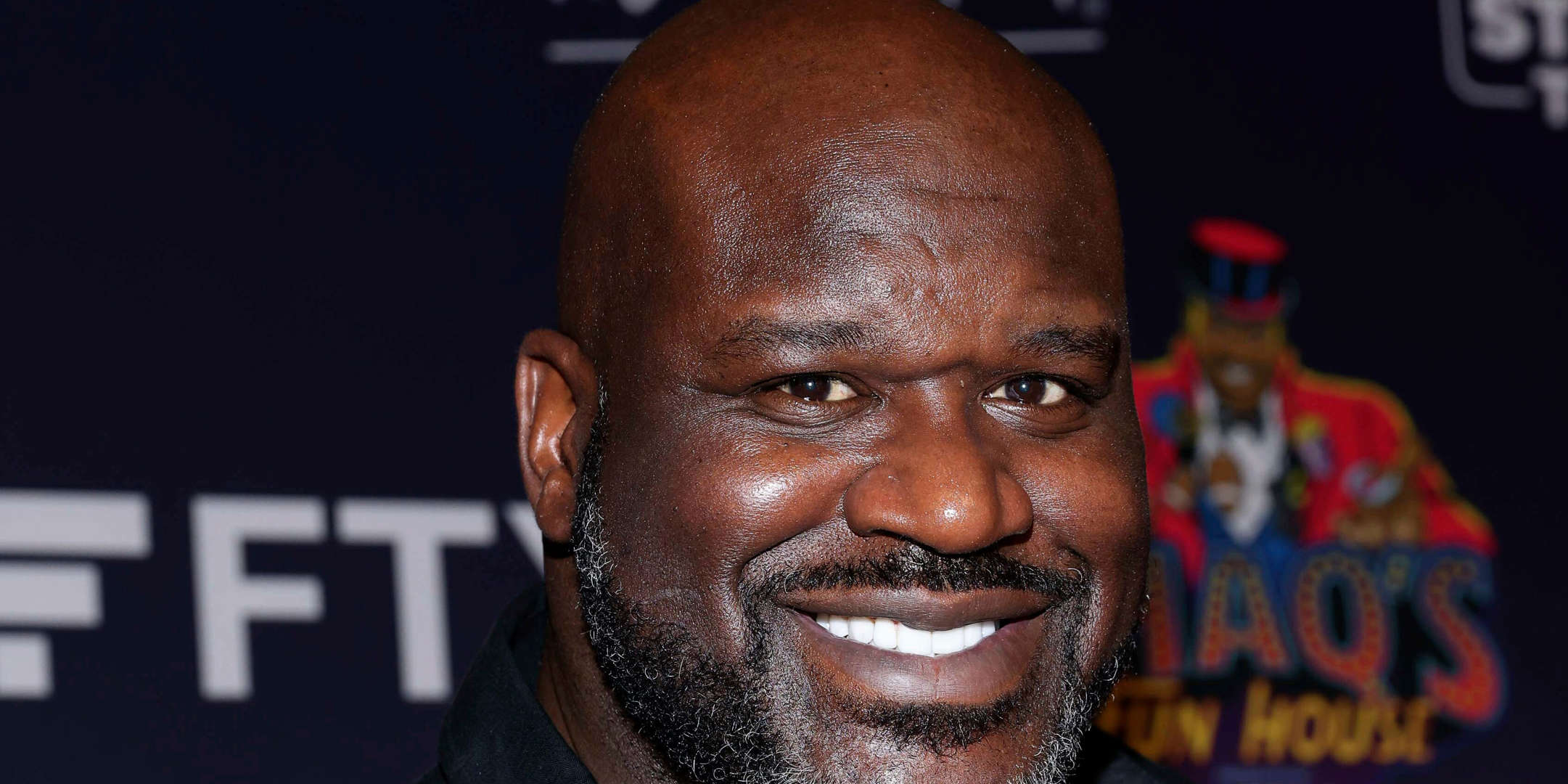
NBA star Shaquille O’Neal finally gets served FTX-linked lawsuit, ending a 3-month chase. (Source.)
Criminal prosecutions and other civil lawsuits are still ongoing, and we may never know just how far this scandal reached, and the extent of those involved, which includes many famous professional sports figures. The Miami Heat NBA Basketball team’s arena was even named after FTX, and had to recently change its name just after FTX had purchased a multi-year sponsorship of the arena.
Here in 2023, however, investors have continued to pour money into Big Tech stocks, in spite of the losses they suffered in 2022 and the hundreds of thousands who have now been laid off by these companies, and I have been warning for the past 3 months that this a huge financial bubble because most of these investments are going into the newest fad in Big Tech: Artificial Intelligence Large Language Models (LLMs) like ChatGPT, in spite of the fact that these new software products are not producing any revenue yet.
And in a report published today about an analysis from JPMorgan, the analysis stated that “The interest sparked in artificial intelligence driven by ChatGPT and other large language models has driven more than half the gains in the S&P 500 this year.”
WOW!!! That’s worse than even I expected! Not only is Big Tech in trouble and about to crash, so is the entire United States financial system.
History Repeats Itself, but This Time it is Far Worse
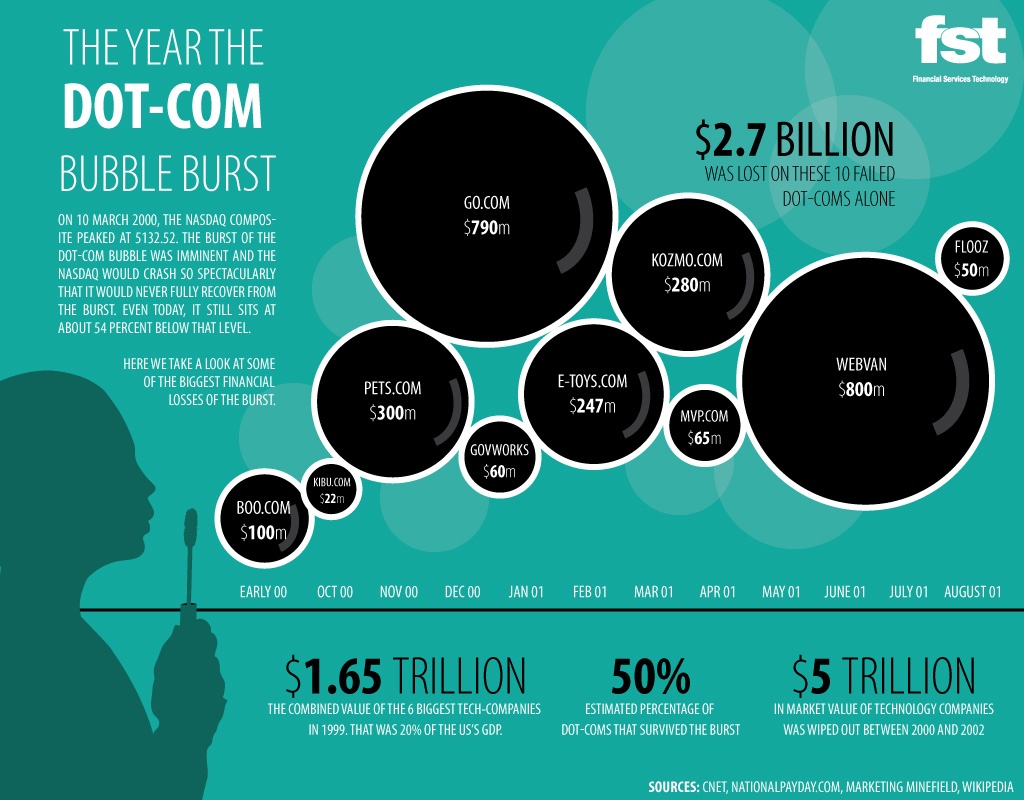
We’ve been here before, back in 2000 and 2001 when the last Big Tech bubble burst in what is usually referred to as the “dot-com” financial bubble burst.
But most of the people running Big Tech today are probably too young to know about that, and who studies history anymore these days when you can go into Big Tech and ride the gravy train of Big Money without even producing anything?
That’s exactly what was happening back in the late 1990s when the first Big Tech bubble was forming. I was there, and I started my own dot-com ecommerce company, which is still around today 21 years later.
Brian McCullough wrote a great review of the dot-com bubble of 2000 back in 2018 for TED.com. Here are some excerpts, and as you read this, take note of the similarities to today’s Big Tech bubble.
A revealing look at the dot-com bubble of 2000 — and how it shapes our lives today
The successful dot-coms of the late ‘90s and early ‘00s had a few things in common: they all vowed to “change the world”, had crazy-high valuations, and were wildly unprofitable.
By 1999, losing money was the mark of a successful dot-com. And few could lose money as prolifically or creatively as Priceline. The head of a rival website named CheapTickets complained that his company couldn’t compete with Priceline’s hype. “We’ve got a policy here at CheapTickets,” founder Michael Hartley groused. “We need to make money. It hurts our valuation.”
So many of the companies that would embody what we think of when we remember the dot-com bubble — Pets.com, eToys, Kozmo.com, UrbanFetch — shared some or all of Priceline’s traits: a business plan that promised to “change the world”; a Get Big Fast strategy to reach ubiquity and corner a particular market; a tendency to sell products at a loss in order to gain that market share; a willingness to spend lavishly on branding and advertising to raise awareness; and a sky-high stock market valuation that was divorced from any sort of profitability or rationality.
It became a joke that the dot-coms that started out promising a grand vision of a more efficient way of doing business were — almost to a company — unprofitable. It’s entirely possible that a lot of them could have focused on the very real efficiencies that selling online made possible, and thereby slowly grown into sustainable businesses. But that was not the name of the game in the late nineties.
The venture capitalists who backed these companies were aiming for supernova IPOs because that’s when they got paid. Any IPO meant an exit for venture investors.
Those incredible first-day “pops” that dot-com stocks experienced when IPOing? That was the early money cashing out, selling their shares to the investing public.
The dot-com bubble was a fantasy period when a lot of VCs actually didn’t care if a business turned a profit, because it didn’t need to. “We’re in an environment where the company doesn’t have to be successful for us to make money,” a venture capitalist at Benchmark admitted when mulling over a pre-IPO investment in Priceline.
In October 1999, the market cap of the 199 internet stocks tracked by Morgan Stanley’s Mary Meeker was a whopping $450 billion. But the total annual sales of these companies came to only about $21 billion.
And their annual profits? What profits? The collective losses totaled $6.2 billion.
“People come in here all the time and say, ‘The last thing I want to be is profitable,’ ” one investment banker bragged in June of 1999. “‘Because then I wouldn’t get the valuation of an internet company.’” (Read the full article here.)
So here we are in 2023 with almost the exact same thing happening, inflating another huge financial bubble fueled by Big Tech, except this time it is far worse!
Back in 2000, the technology was still in its infancy, and contained primarily in the tech sector of the economy. The top 10 tech stocks in 2000 made up about 23% of the S&P’s total market cap.
Today, Big Tech makes up about 35% of the S&P 500 (source), but that does not even begin to tell the true story of investments in technology, as their products are now used by almost all other sectors of the U.S. economy, as “biotech,” “fintech,” and other such terms are commonly used today to describe technology’s growing influence into the entire U.S. economy.
And they ALL want to get in on the latest Big Tech fad: ChatGPT type AI software.
Like all Ponzi schemes, it may take a while for the U.S. economy to implode and be reflected in the U.S. Stock Market, which has basically devolved into a huge Ponzi fraud.
The Big Tech 1st quarter reports are coming out this week, and while they most certainly will reflect huge financial losses, they will ride the AI train as far as they can betting on the future.
For example, I expect that these reports will show some growth in some sectors, like Cloud Computing where the demand is increasing to supply the computing power needed to develop all this AI software, and that will be enough for the Wall Street investors to bet on the future and keep pumping money into this Ponzi fraud.
But it will eventually fail, as the banks fail, and eventually there will be no more money left to keep funding the fraud.
The Wall Street billionaires and bankers will then step in and probably use the Federal Reserve to “manage the crisis” and determine which Tech companies are too big to fail, and then put the American taxpayers on the hook to bail them out.
The same will happen to the banking sector as well, and on the other side of this crash there will only be a few technology companies left that run the entire technology sector, and only a handful of banks left that everyone will be forced to bank at.
This will make it far easier to control every aspect of the American public as they implement digital IDs and tracking for everyone, and eventually Central Bank Digital Currencies.
Related:
WARNING: Faith in Artificial Intelligence is About to Destroy America – A Total System Collapse May be Imminent
Will America’s Addiction to Computer Technology be it’s Downfall?
See Also:
Understand the Times We are Currently Living Through
The God of All Comfort
Year 2023: Will America Fulfill Its Destiny? Jesus Christ is the Only “Transhuman” the World Has Ever Seen or Will Ever See
An Invitation to the Technologists to Join the Winning Side
Synagogue of Satan: Why It’s Time to Leave the Corporate Christian Church
How to Determine if you are a Disciple of Jesus Christ or Not
Epigenetics Exposes Darwinian Biology as a Religion – Your DNA Does NOT Determine Your Health!
What Happens When a Holy and Righteous God Gets Angry? Lessons from History and the Prophet Jeremiah
Insider Exposes Freemasonry as the World’s Oldest Secret Religion and the Luciferian Plans for The New World Order
Identifying the Luciferian Globalists Implementing the New World Order – Who are the “Jews”?
Fact Check: “Christianity” and the Christian Religion is NOT Found in the Bible – The Person Jesus Christ Is
The Seal and Mark of God is Far More Important than the “Mark of the Beast” – Are You Prepared for What’s Coming?
The Satanic Roots to Modern Medicine – The Mark of the Beast?
Medicine: Idolatry in the Twenty First Century – 7-Year-Old Article More Relevant Today than the Day it was Written
Having problems receiving our emails? See:
How to Beat Internet Censorship and Create Your Own Newsfeed
We Are Now on Telegram. Video channels at Bitchute, and Odysee.
If our website is seized and shut down, find us on Telegram, as well as Bitchute and Odysee for further instructions about where to find us.
If you use the TOR Onion browser, here are the links and corresponding URLs to use in the TOR browser to find us on the Dark Web: Health Impact News, Vaccine Impact, Medical Kidnap, Created4Health, CoconutOil.com.
The post JPMorgan: “ChatGPT has Driven Half the Gains in the Stock Market this Year” – Mega Financial Bubble About to Explode first appeared on Health Impact News.

